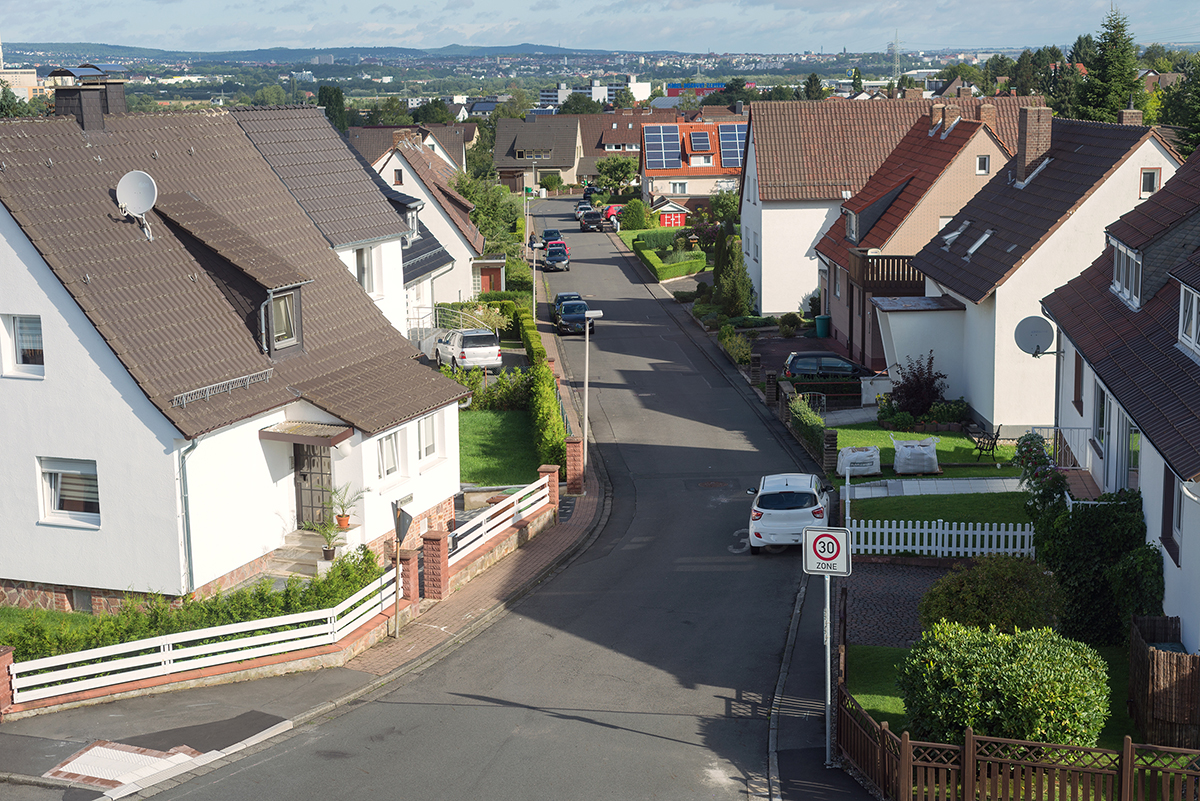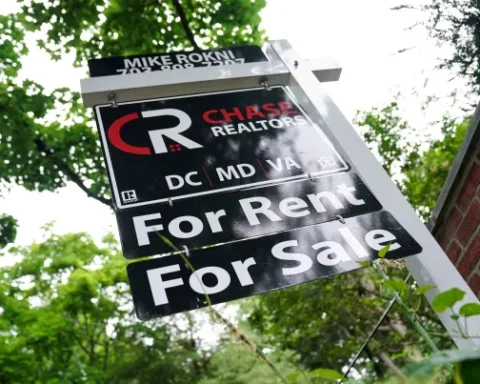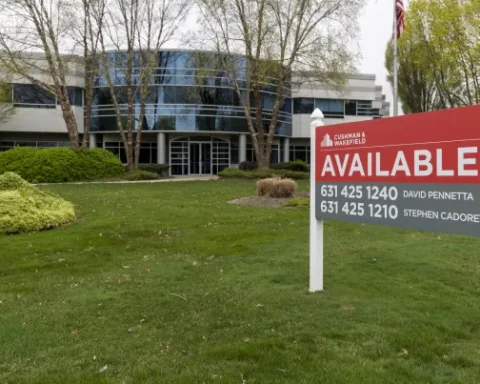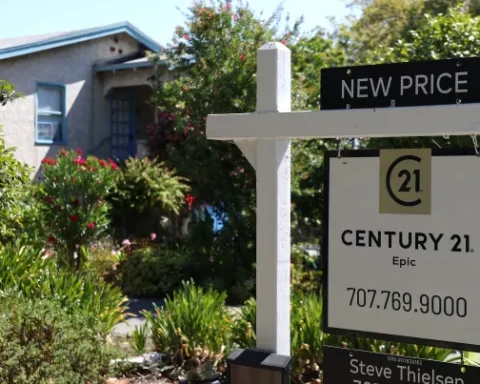After experiencing a drop in house prices towards the end of last year, Germany’s real estate market has stopped, with experts predicting a continued decline in property values.
Compared to the third quarter of 2022, German property prices have fallen by approximately 1.8 percent, although they remain 2.1 percent higher yearly. The Association of German Pfandbrief Banks (VDP) released a report on Friday, revealing a widespread decline in real estate prices, including office and retail spaces.
Despite this general trend, two major German cities have shown contrasting patterns. Frankfurt witnessed a steeper decline in property value compared to other cities, with prices down by 2.7 percent from a year ago and 4.8 percent compared to the third quarter of 2022. On the other hand, Berlin’s housing market displayed relative resilience, with property prices only decreasing by 0.7 percent in the fourth quarter and remaining 4.6 percent higher than a year ago.
The VDP index, based on transactional data from 700 banks rather than asking prices, provides insights into actual selling prices. The index attributes the price fall primarily to higher interest rates, resulting in fewer people being able to afford mortgages. The VDP expects a continuation of moderate declines in the upcoming quarters, but it is unlikely that prices will return to their 2020 levels.
Despite the decline in house prices, renters continue to face challenges. Contract rents increased by an average of 1.9 percent in the fourth quarter of 2022, which VDP CEO Jens Tolckmitt attributes to slow housing construction in Germany. He stated, “There are no signs of a trend reversal here either, on the contrary, because new construction activity in Germany is still far behind demand.”
The falling property purchase prices in Germany have increased pressure on real estate companies but have not relieved the struggling housing market. The sector grapples with substantial financial losses for real estate companies, persistently high property prices, and a severe housing shortage.
In the first quarter of 2023, German real estate prices resumed their downward trend, declining by 3.3 percent compared to the previous quarter, according to an analysis published by the Association of German Pfandbrief Banks (VDP). VDP CEO Jens Tolckmitt remarked, “The entire real estate market has been in upheaval since mid-2022,” highlighting the negative impact of high inflation, rising interest rates, and uncertainty on real estate prices.
The declining prices have affected major real estates companies, such as LEG Immobilien and Vonovia. LEG Immobilien announced expectations of a decline in the value of their real estate assets in the first half of 2023, while Vonovia reported a loss of around 2 billion euros in the first quarter, largely due to the devaluation of its real estate portfolio by over 3 billion euros.
Despite the falling prices, property in Germany remains expensive as prices have steadily climbed for decades. According to a study by the Association of Sparda Banks, property prices in 2022 were more than twice as high as in 2005.
Furthermore, residential rents have continued to rise, increasing by 3.5 percent in the first quarter of 2023, according to the VDP analysis. Tolckmitt noted, “There is still a real housing shortage: high and still growing demand meets far too little supply in the housing market.”
Although the German government aims to build 400,000 homes annually, progress has been slow. Building permits have seen a ten-month consecutive decline since February, largely due to rising interest rates and continuing costs for materials. Official figures indicate that around 20 percent fewer new homes have been approved than the previous year.
The challenges the German housing market faces have prompted the government to address the issue—however, their efforts to meet the demand for housing need to catch up to schedule. The scarcity of available housing has created an imbalance between high demand and insufficient supply, contributing to rising rental prices.
Germany’s real estate boom has come to an end, with property prices experiencing a decline. The price drop is attributed to higher interest rates, slow housing construction, and uncertainty in the market. While some cities, like Frankfurt, have witnessed steeper declines, Berlin has shown relative resilience. Real estate companies are devaluing their assets, and the housing market continues to face challenges with high prices and a housing shortage. Declining building permits and rising costs have hindered the government’s efforts to address the housing crisis. The future of the German real estate market remains to be determined as moderate declines are expected to persist, but a return to previous price levels is unlikely in the near term.







